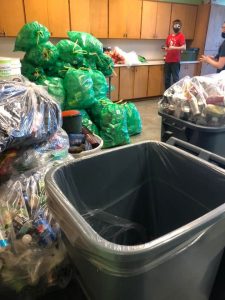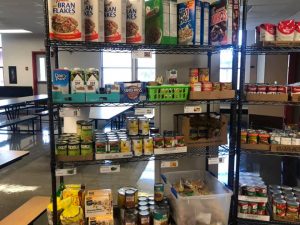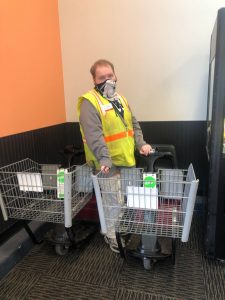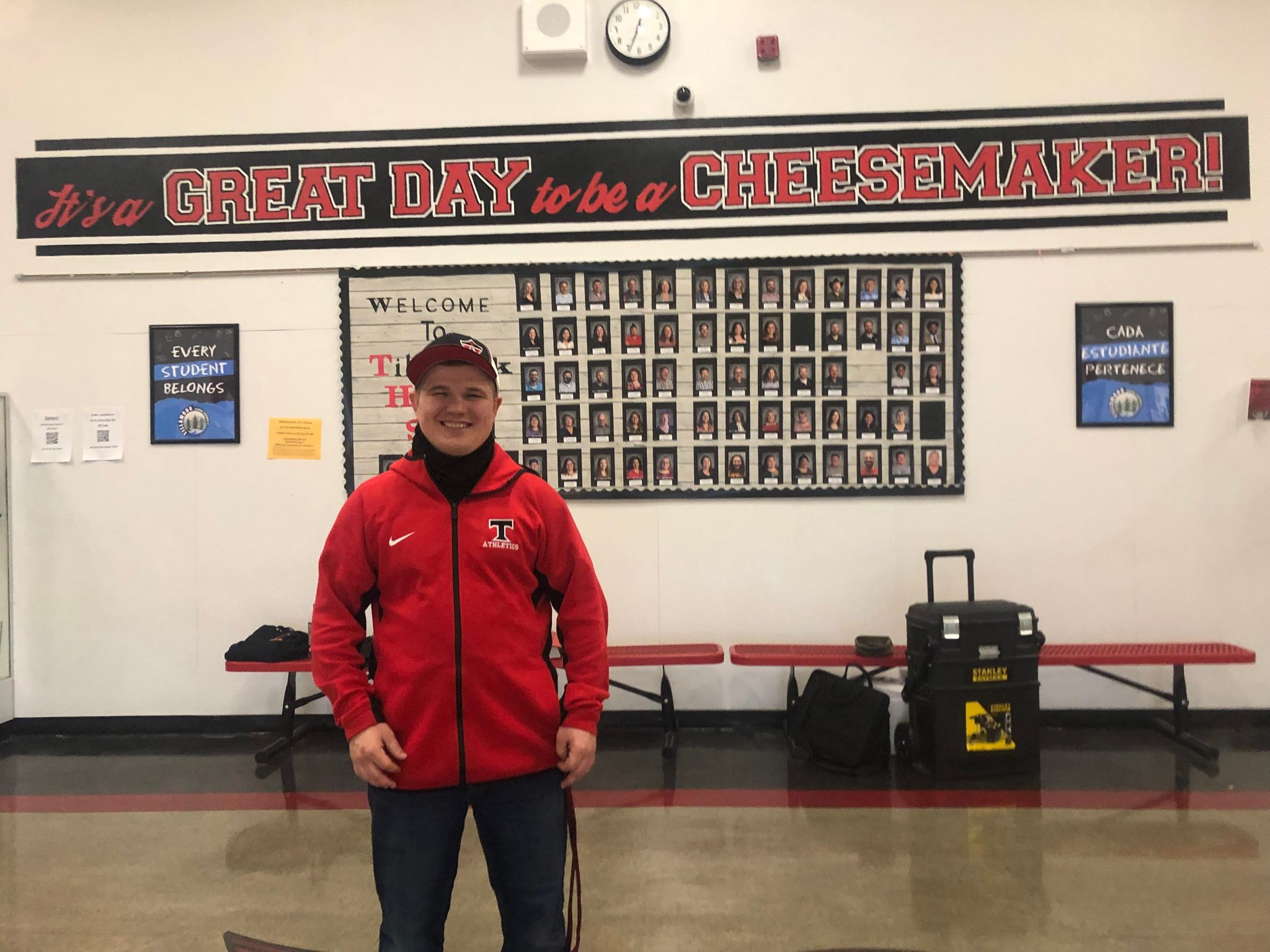Story & Photos by Don Backman
“You have the job. When can you start work?” Those are the words every job applicant wants to hear, including those who have disabilities, who, unfortunately, often struggle to find work even when employees are in strong demand. In Tillamook School District, Tiffany Beeler helps kids learn job getting and job keeping skills as part of her duties as a Transition Specialist at Tillamook High School. A Transition Specialist helps students “transition” from being students in a school to being able to get jobs and live as independently as possible after they complete public school. For many students, this is getting and keeping a job and being able to eventually live independently.
Tillamook High School was the recipient of the Transition Program of the Year award in 2019, a statewide award, which considers schools of all sizes in one category, given out at the Oregon Statewide Transition Conference (OSTC). According to the OSTC, the conference “Provides attendees an opportunity to learn, network, and share innovative approaches regarding transition practices in Oregon. This conference is in partnership with Oregon Department of Education, Oregon Association of Vocational Support Needs Personnel, Oregon Vocational Rehabilitation, and Oregon Youth Transition Program.” The following year, one of the THS students earned the Transition Student of the Year.

As a Transition Specialist and one of the team, Tiffany Beeler works with students in many ways. One program that she runs, the Green School Program, is a student-driven business that recycles resources such as paper, bottles, cans, cardboard, and glass. “We recycle over 600 pounds of paper a week, and a peak times we can recycle over 1000 pounds a week,” Beeler pointed out “THS (alone) recycles over 200 pounds a week.” The students, based out of Tillamook High School, pick up recycling at the other schools, sort it, and transport it to recycling locations. “This is an inclusive business for students with disabilities and peer mentors.” An average of 600 pounds a week would equal more than 30,000 pounds of paper per school year.
The student’s collect the recycling from classrooms and other locations throughout the district, sort and bag what can be redeemed for money to purchase supplies such as more collection containers and bags, and the other recyclables are taken to the transfer station. “The students play a vital role in the recycling program,” Beeler said.
 This year the Transition Program is working in the school food pantry. “Three students are running the school pantry as their senior project,” Beeler pointed out. “Students help in shopping, stocking, and setting up each week.” She went on to explain that, “There are peer helpers there as well. This is an example of inclusion. All students should be able to access the pantry and work in the pantry.” The school pantry can be accessed by students and the community.
This year the Transition Program is working in the school food pantry. “Three students are running the school pantry as their senior project,” Beeler pointed out. “Students help in shopping, stocking, and setting up each week.” She went on to explain that, “There are peer helpers there as well. This is an example of inclusion. All students should be able to access the pantry and work in the pantry.” The school pantry can be accessed by students and the community.
Blooming Buddies is a program featuring community partnerships that Beeler is especially proud of. It is in its eighth year of operation, and is entirely run by students who shop for flowers, create arrangements, and deliver them to school and community partners. The students deliver a flower a week to those who sign up. “The cost for the community members this year is forty-five dollars a year,” Beeler explained. “And we make one delivery per week.” The students have to learn how to work with others when they prepare the flowers and vases, and they learn and demonstrate the customer service skills needed to interact with their customers. For more information, or to sign up, contact Tiffany Beeler at Tillamook High School.
 Another aspect of a successful transition program is community job shadows and job placements. According to Beeler, this is, “…A way for students to experience a work setting. Students can learn what they like and don’t like, they learn how to work, and they can identify their interests and the eventual need for training.” The job shadows and job placements can run from one to two hours a day, and she hoped to get them fully back up and running this spring. This has led to some students finding regular jobs while still in school.
Another aspect of a successful transition program is community job shadows and job placements. According to Beeler, this is, “…A way for students to experience a work setting. Students can learn what they like and don’t like, they learn how to work, and they can identify their interests and the eventual need for training.” The job shadows and job placements can run from one to two hours a day, and she hoped to get them fully back up and running this spring. This has led to some students finding regular jobs while still in school.
Other components of the position involve teaching students how to prepare nutritious meals that taste good. Students need to find out what they need for a recipe, they need to learn how much that would cost and where to get the ingredients, and they learn how to do the actual cooking part. Taking care of personal finances, learning to locate community services, and learning how to get around the community is also part of what students learn. “You have to be good at multitasking to do this job,” Beeler said with a laugh. “I also get to attend a lot of community meetings.”
Rachelle Metcalfe and Brianne Kephart are Transition Specialists who work with the Youth Transition Program (YTP) through Vocational Rehabilitation. They currently operate a vending machine business. They also place students into work positions in the community. The three specialists closely coordinate their efforts. The Transition Program also features a large number of peer mentors who have completed the Exceptional Child program and their time in the program has led to their going on to become educational assistants, teachers, personal support workers, and job coaches.
The THS Transition Program was scheduled to present its award-winning programs to schools of all sizes and from all across the state at the Oregon Statewide Transition Conference in the Spring of 2020. Unfortunately, it was canceled due to the pandemic. “We’re back to about 90% of where we were in 2019,” Beeler said. “Right now the biggest issue is being short of staff. We hope to get back to 100% this spring.


